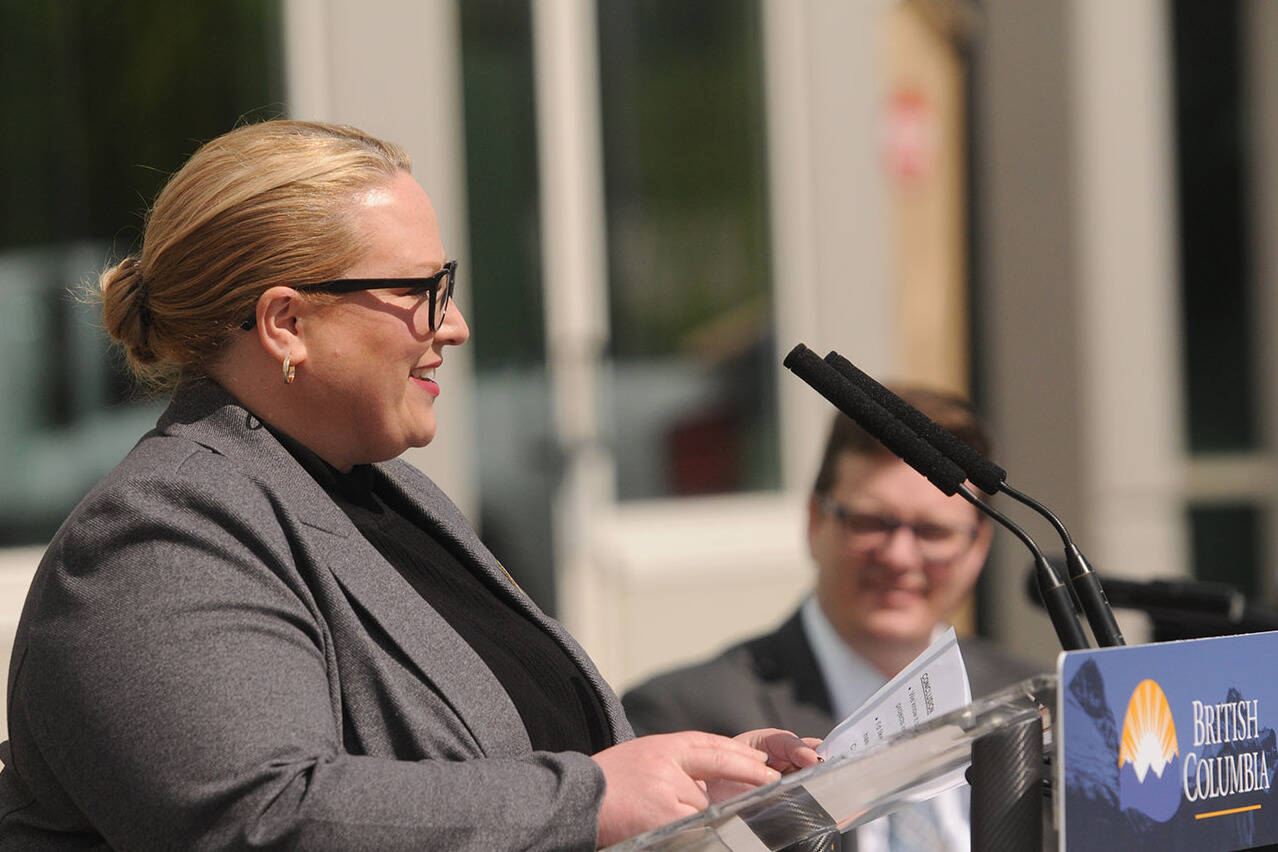B.C. has released its long-awaited gender-based violence action plan, with promises to reduce wait lists on existing services, better supports for Indigenous survivors and address sexual and intimate partner violence by police.
These commitments, among others, are backed by a fresh $61.9 million announced by the federal government on Friday (Dec. 8), to be spread over four years.
B.C.’s parliamentary secretary for gender equity, Kelli Paddon, said Sunday (Dec. 10) their plan is one step toward the ultimate goal of ending gender-based violence.
Nationally, 30 per cent of women aged 15 or older have been sexually assaulted and 44 per cent report having experienced some form of violence in an intimate relationship, according to Statistics Canada. Those numbers become even higher for Indigenous and racialized women, newcomers to the country and LGBTQ2S+ individuals.
B.C.’s action plan lays out what steps the province is currently taking and what it is aiming to accomplish in the next three years.
Among them is a promise to bolster and expand existing programs and services. Paddon said Sunday she is well aware of the long wait lists that women fleeing violence often face when seeking help.
The executive director of the B.C. Society of Transition Houses, Amy FitzGerald, said they have a constant lack of safe spaces. She said in a single 24-hour period they tracked last year, they took in 1,500 women across B.C. and had to turn away another 221.
B.C. is in the midst of adding 3,000 housing units to help fill that gap. Of them, 379 units are complete, 624 are being built and the majority of the remainder are expected to be ready in the next two years.
FitzGerald said the units are a very welcome investment, but that they still are “not enough.” She pointed to Campbell River where 55 of those new units were added, but 120 women are on the wait list. In Victoria, FitzGerald said their wait list is five times the length of the available units.
“No one should have to choose between homelessness and violence,” she said.
Another major area B.C. has promised to invest in is Indigenous-specific supports and services. According to Statistics Canada, 56 per cent of Indigenous women have experienced physical assault and 46 per cent have experienced sexual assault. Indigenous women and girls also make up a grossly disproportionate number of homicide victims.
READ ALSO: ‘National shame:’ Groups decry inaction on violence against Indigenous women, girls
Leslie Varley, the executive director of BC Association of Aboriginal Friendship Centres, said the action plan importantly gives Indigenous organizations control over how money is spent. Varley said they plan to use the funds for creating community safety plans and education campaigns, investing in healing and addressing human trafficking, among other things.
Like FitzGerald, she said it will take much more to get them to a good place, however.
B.C. is also committing to creating an action plan specific to post-secondary institutions, developing gender and cultural safety conditions for work camps, making the province safer and more inclusive for transgender and gender-diverse people and introducing virtual counselling services for underserved communities.
The action plan also touches on sexual and intimate partner violence perpetrated by police officers. Because survivors of such experiences often don’t feel safe reporting to law enforcement, the action plan promises to look at bringing in a civilian-led agency to oversee those cases.
The plan further commits to training staff at shelters and transition homes on how to recognize and support women with traumatic brain injuries. It also promises to invest in programs that teach men to take responsibility for their abusive behaviour.
Paddon said Sunday the engagement that went into building the action plan was one of their government’s most thorough to date, but that they are also aware the plan will require constant input and tweaking to ensure it supports those it is intended to serve.
Beyond the new investment from the federal government, the plan will be supported by an ongoing annual investment of $60 million from the province.
READ ALSO: Two-thirds of Canadians know a woman who has experienced assault: Poll
READ ALSO: B.C. MP pushing to criminalize abusive practice of coercive control

